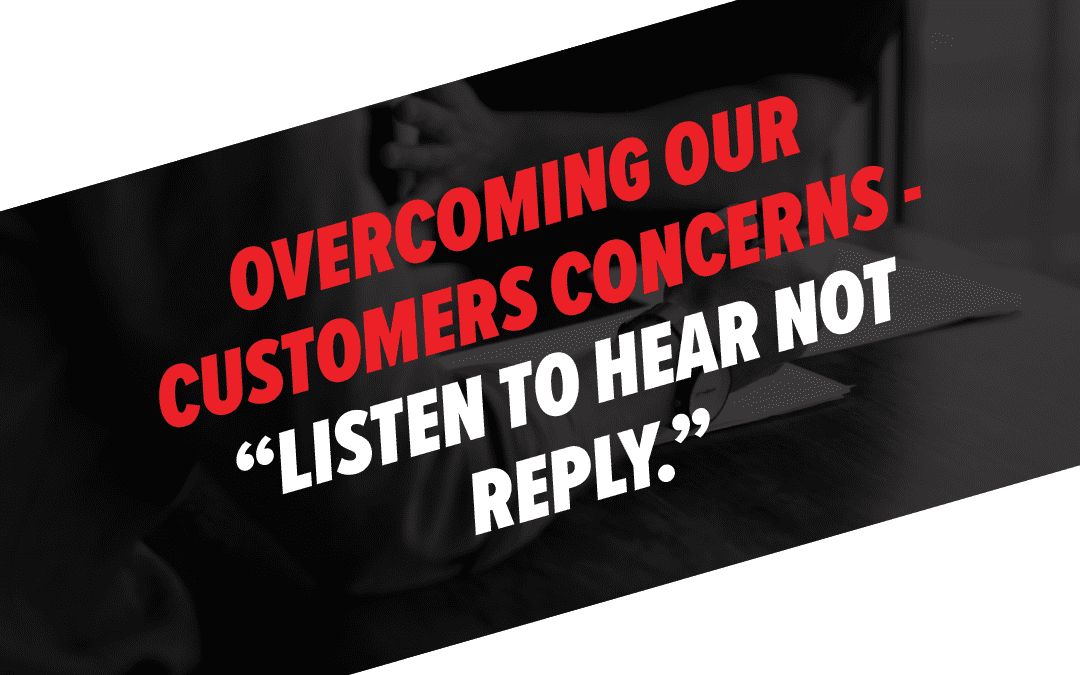
by Mike Brunel | Nov 28, 2023 | Motivation and Mindfulness, Sales
“Year-End Goal Reflection and Planning”
As we approach the end of the year, it’s a crucial time to reflect on the progress we’ve made and set our sights on 2024.
During the holiday season, you might find it beneficial to take a moment and look back at your achievements over the past 12 months.
This period of reflection is not just about celebrating successes but also about understanding the hurdles that stood in our way.
After evaluating the goals you reached, pinpoint the factors behind these successes,
Then take a peak into the future and set some time aside to set new objectives for 2024.
Personally I always make a point to acknowledge and celebrate the goals I’ve accomplished.
This recognition is a vital part of the journey, reinforcing positive behaviors and attitudes.
However, it’s equally important to ask ourselves, “Why did some goals remain unfulfilled?” These goals were significant enough to be set, yet they remained elusive.
This self examination could be the key to understanding and overcoming the barriers to your success.
“What have I learned?
Some goals might have been too ambitious,
Or, I didn’t allot a realistic timeframe to achieve them.
Perhaps I didn’t dedicate the necessary resources, or my emotional commitment wavered. T
he passion and consistent effort I applied to my successful goals might have been lacking in others. Additionally, consistent monitoring and adapting were sometimes missing.
In my upcoming article, I’ll share strategies to overcome these obstacles.
These insights aim to kickstart your 2024 with clarity and a renewed drive to achieve your goals.
Until then, embrace the journey of selling and growing in 2024!
Mike.
PLUS, whenever you are ready…here are ways I can help you grow YOUR business.
1. Join my free Facebook group – Sales Mindset Inner Circle
My favourite thing to do is show you what’s working right now. It’s not as good as being a client, but it’s close.
2. Take advantage of a FREE 45-minute consultation
Need some sales support? it. Please make an appointment, and let me take you through the past, present, and future templates.
Finally, grab my new digital book on ‘How to get a predictable sales system into your business without coming across as salesy’

by Mike Brunel | Nov 20, 2023 | Sales, Strategy
The Salesperson’s Checklist: Honing Your Questioning Skills
Over the last few weeks, we have been talking about all sorts of questions. Sales Questions, personal questions, goal-setting questions, open questions,
In the dynamic world of sales, the ability to ask the right questions is a game-changer.
As promised from last week’s blog, here’s a practical checklist I compiled from these articles to help you think about having effective conversations and better results.
1. Prepare Your Mindset
- Understand the value of questions in building relationships.
- Shift focus from selling to learning about the client’s needs.
2. Research Your Client
- Gather background information about the client and their business.
- Identify potential challenges they might be facing.
3. Develop Open-Ended Questions
- Create questions that cannot be answered with a simple yes or no.
- Ensure your questions are relevant to the client’s context.
4. Practice Active Listening
- Focus fully on the client’s responses.
- Avoid planning your next question while listening.
- Show that you are listening through nods and affirmations.
5. Follow-Up Questions Are Key
- Develop follow-up questions based on the client’s responses.
- Dig deeper to uncover underlying needs or challenges.
6. Balance the Conversation
- Ensure that the client does more talking than you.
- Guide the conversation without dominating it.
7. Read Non-Verbal Cues
- Pay attention to the client’s body language and tone.
- Adjust your approach based on these cues.
8. Reflect and Learn from Each Interaction
- After each meeting, review what went well and what didn’t.
- Continuously refine your questions based on past experiences.
9. Practice, Practice, Practice
- Regularly role-play sales scenarios with colleagues.
- Seek feedback on your questioning technique.
10. Stay Curious and Empathetic
- Maintain genuine curiosity about your clients’ needs.
- Cultivate empathy to connect with clients on a deeper level.
This checklist is designed to be a living document for sales professionals.
Regularly revisiting and updating your approach to questioning can lead to more meaningful client interactions and successful outcomes. Remember, the right question at the right time can make all the difference.
Good selling this week.
Mike
PLUS, whenever you are ready…here are ways I can help you grow YOUR business.
1. Join my free Facebook group – Sales Mindset Inner Circle
My favourite thing to do is show you what’s working right now. It’s not as good as being a client, but it’s close.
2. Take advantage of a FREE 45-minute consultation
Need some sales support? it. Please make an appointment, and let me take you through the past, present, and future templates.
Finally, grab my new digital book on ‘How to get a predictable sales system into your business without coming across as salesy’

by Mike Brunel | Nov 13, 2023 | Sales
The Power of Open-Ended Questions in Sales
Last week, our blog highlighted the importance of keeping the client engaged by asking the right questions. This week, we delve deeper into the art of using open-ended questions in sales conversations.
Mastering Open-Ended Questions
“Harnessing the Power of Open-Ended Questions.”What exactly are open-ended questions?
These are inquiries that prompt more than just one-word responses. They open the door to detailed answers, lists, clarifications, or expansive information about a client’s needs.
Examples of Open-Ended Sales Questions
How you frame your questions can dramatically alter the course of your sales dialogue. Let’s explore some examples:
- What do you expect from your salesperson?
- Can you elaborate on that?
- How would you describe your ideal product?
- Tell me about your experience purchasing a similar product.
- What are the limitations of your current product?
- Could you specify what features you’re looking for?
- Which colours do you prefer for this product?
- When would be the ideal delivery time for you?
- Why does that particular shade appeal to you?
Each question requires a response beyond a simple ‘yes’ or ‘no’, paving the way for a richer, more informative conversation.
Beyond Yes or No: The Impact of Open-Ended Questions
Open-ended questions do more than elicit lengthy responses; they steer the conversation away from just price haggling, opening avenues to truly understand the client’s problems and how your product or service can offer solutions.
The Art of Listening for Clues
Asking open-ended questions does something else: it allows you to listen for clues. These clues often manifest as problems the client faces, and each problem is an opportunity for you to present a solution.
Looking Ahead: Practice Makes Perfect
Next week, we will delve into practical tips using a simple checklist. Until then, happy selling!
Mike (open-ended-questions) Brunel
PLUS, whenever you are ready…here are ways I can help you grow YOUR business.
1. Join my free Facebook group – Sales Mindset Inner Circle
My favourite thing to do is show you what’s working right now. It’s not as good as being a client, but it’s close.
2. Take advantage of a FREE 45-minute consultation
Need some sales support? it. Please make an appointment, and let me take you through the past, present, and future templates.
Finally, grab my new digital book on ‘How to get a predictable sales system into your business without coming across as salesy’
.
Click the link
by Mike Brunel | Nov 6, 2023 | Negotiation, Sales
The Transformative Power of Effective Sales Questioning Techniques
Over the past fortnight, my blog has emphasised a powerful theme critical for any sales professional’s success: Effective Sales Questioning Techniques.
The ability to ask the right questions can dramatically shape our interactions with clients.
The Misconceptions of Salesmanship
A common misconception in sales is equating the craft with employing underhanded tactics akin to those of a stereotypical slick salesperson.
There is no place for “slick” in today’s sales environment.
This approach is short-sighted. The true art of sales lies in deploying effective sales questioning techniques to delve into what truly occupies a client’s mind.
My own business witnessed a considerable transformation when we shifted our focus from pitching to questioning—our conversations became more engaging, and our sales cycle moved more smoothly.
Keeping the Conversation Alive
How can one maintain a lively and engaging sales dialogue? By implementing effective sales questioning techniques, you foster a conversation that naturally progresses.
The path a sale takes is often shaped by the questions we ask, guiding the conversation toward a fitting resolution.
A mentor of mine, Brian Duffy, always stressed the significance of letting the client do the talking: “If the client is speaking, you’re learning and the sale is advancing. If you’re doing all the talking, progress halts.”
His style of saying “Shut up and listen”
The Art and Science of Effective Questioning
So, how does one perfect their effective sales questioning techniques? In my book, I explore the contrast between ‘Can I help you?’ questions and those that ‘Open up a discussion’—the difference between closed-ended and open-ended questions. Understanding this contrast is key to preventing potential clients from slipping away.
The Pitfalls of Closed-Ended Questions
The issue with closed-ended questions is that they can back a respondent into a simple ‘yes’ or ‘no’ corner.
Examples include.
- Can I help you?
- Is that your final answer?
- Should I call and sort it out?
- Are you interested in our new product?
- Are you satisfied with these options?
- Are you just browsing today?
- Hello there.
- Let me know if you need assistance, alright?
These types of questions, while common, often bring the conversation to a halt.
There are exceptions, but generally, they are not effective sales questioning techniques that uncover the deeper concerns or needs of a customer.
By consistently practising effective sales questioning techniques, salespeople can transform their interactions, better understand their clients, and ultimately, achieve greater success in their sales careers.
Mike (Make your questions be open ones) Brunel
PLUS, whenever you are ready…here are four ways I can help you grow YOUR business.
1. Join my free Facebook group – Sales Mindset Inner Circle
My favourite thing to do is show you what’s working right now. It’s not as good as being a client, but it’s close.
2. Take advantage of a FREE 45-minute consultation
Need some sales support? Make an appointment, and let me take you through the past, present, and future templates.
3. Work with me one-on-one
If you want to take your product or service from face-to-face to virtual selling, then I have a product that may be able to help you. You can get started for as little as $250 a month. If you’re interested then email mike@mikebrunel.com and put ‘Virtual Selling’ in the subject line…tell me a little about your business and I’ll get you all the details.
4. Finally, grab my new digital book on ‘How to get a predictable sales system into your business without coming across as salesy’
Click the link
Cheers
Mike Create PDF



